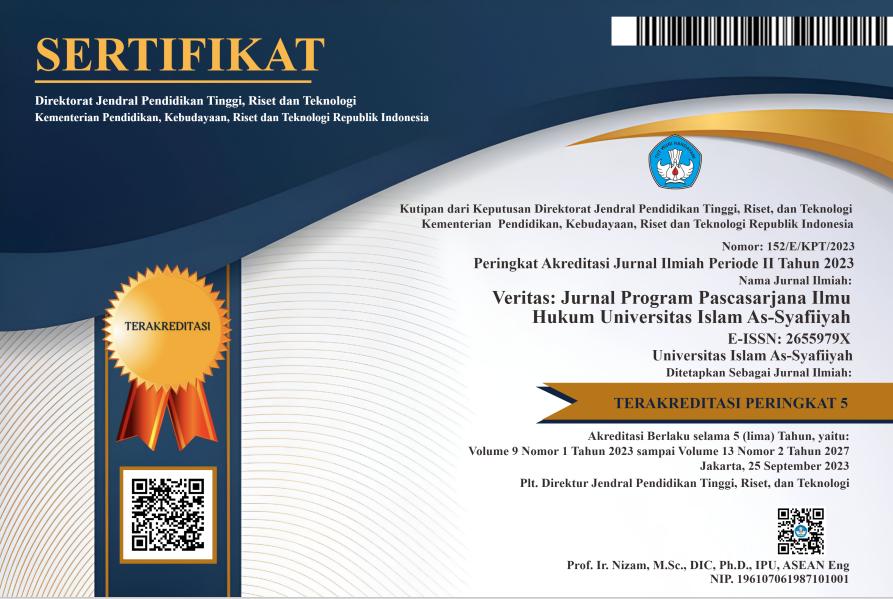FATWA MUI DITINJAU DARI PERSPEKTIF TEORI POSITIVISME HUKUM
Abstract
This research discusses about the Fatwa of the Indonesian Council of Ulama (MUI) viewed from the perspective of the theory of legal positivism. The Fatwa of MUI be reviewed from the viewpoint of the constitution and positive law are not binding and can not be imposed through law enforcement. Because the fatwa of MUI not Positive Law and not binding. Given that the law is not yet formalized the State is not binding and can not be coerced into effect. In the theory of legal positivism, it should be explicitly separating between law and morality (between the applicable law and the law should be, between das sein das sollen) which according to the positivist view, there is no other law except the command authorities and the law was identical to the law. Indonesia is a democratic country that should be able to formulate a law to raise awareness of community law into positive law corresponding legal needs of society. But if it is not or has not been done, then the state must respect the laws of life, as reflected in the authoritative fatwas and facilitate it so that living law that can be implemented properly in society.




